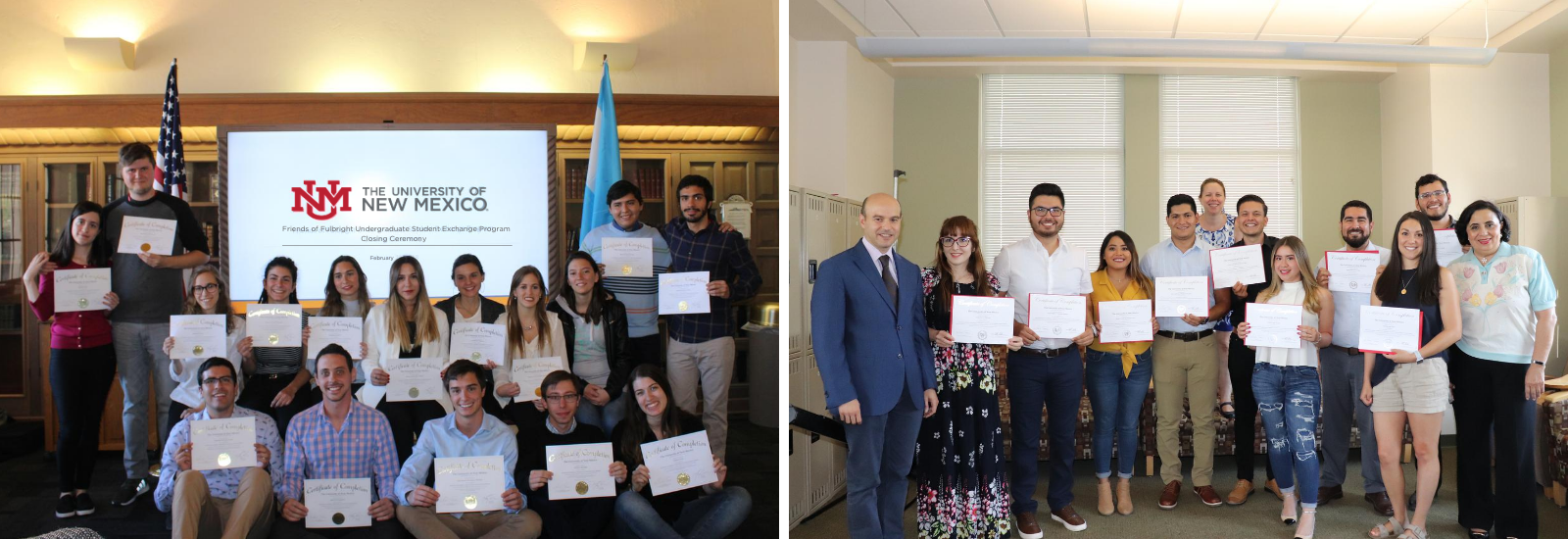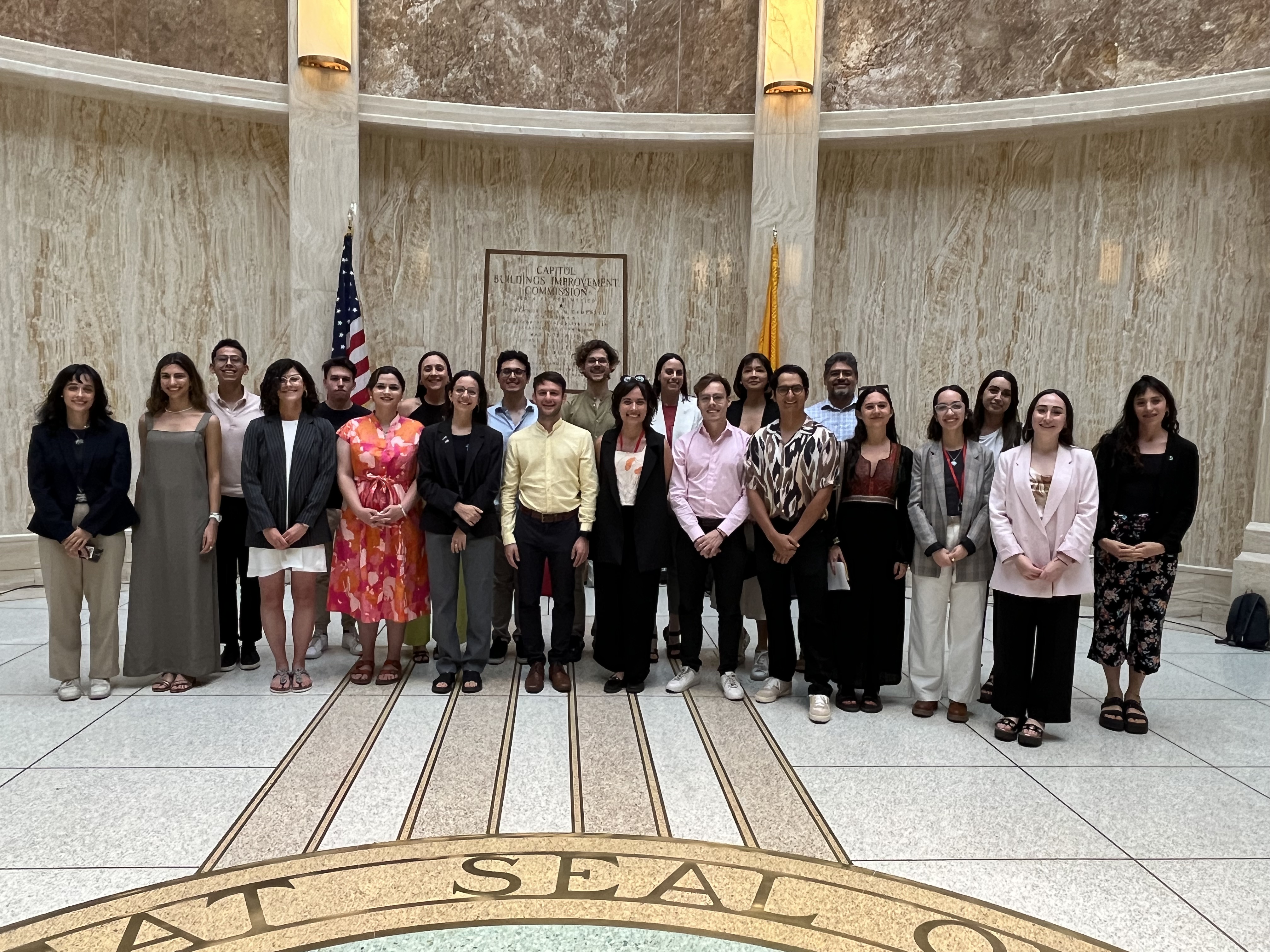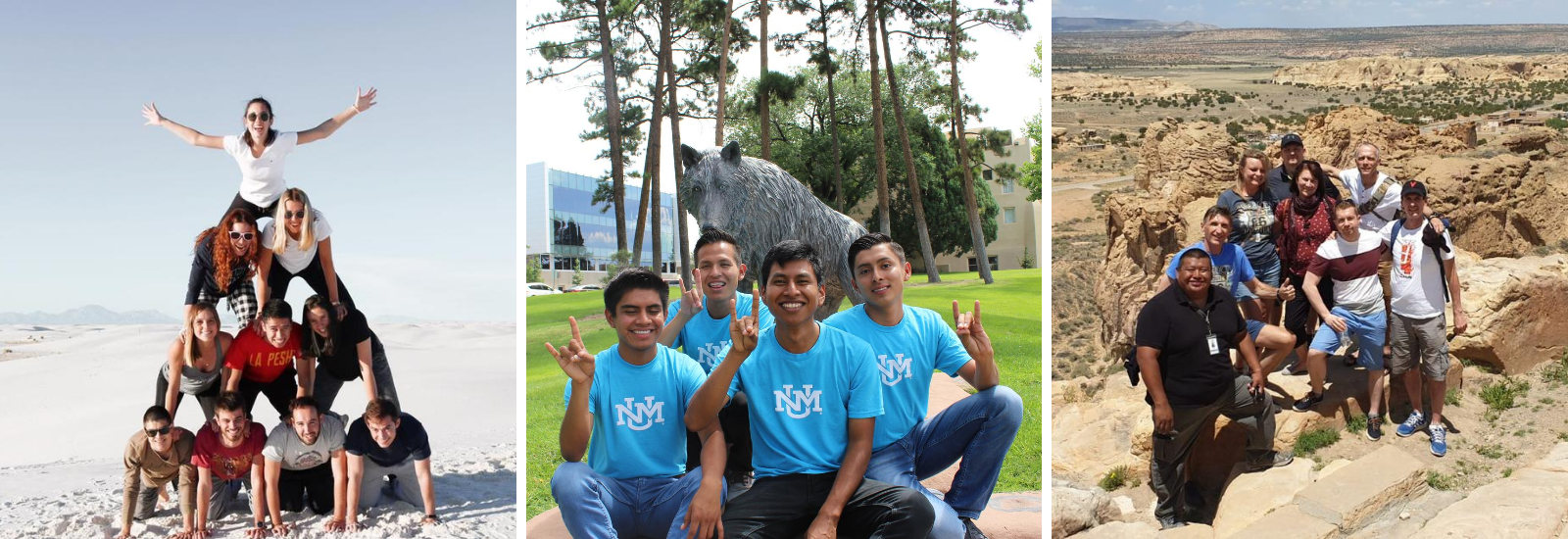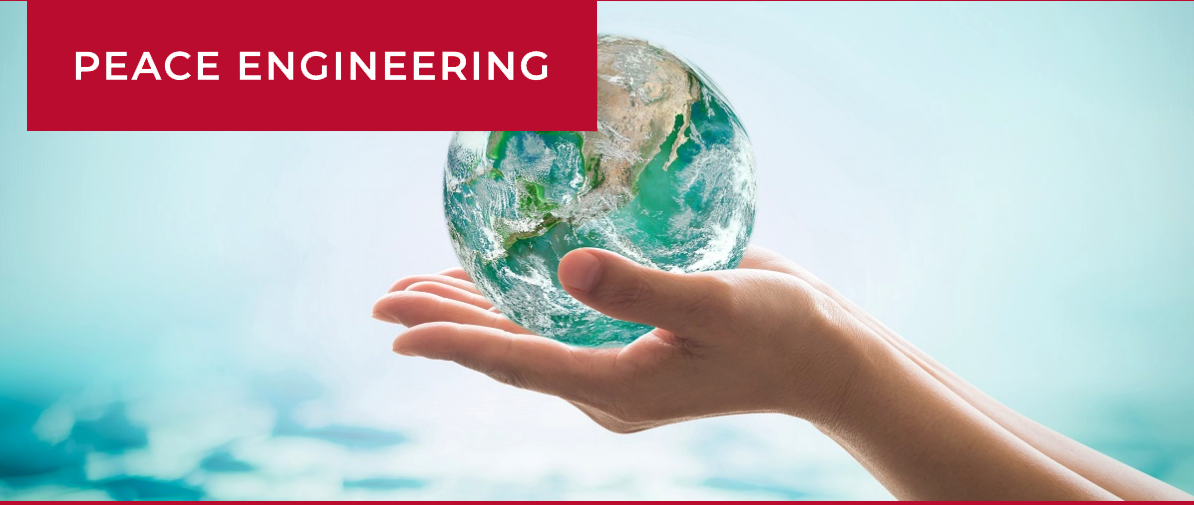
Tuesday, June 20
9:00am - 12:00pm USA Mountain Time
12:00pm - 3:00pm Argentina Time
Facilitated by:
Dr. Ramiro Jordan
Associate Dean of Engineering for International Programs
The University of New Mexico
9:00-10:00 AM MDT / 12:00-1:00 PM ART
Presenters:Dr. Ramiro Jordan, UNM School of Engineering; Dr. Sue Wilder, UNM Global Education Office; Agostina Curcio, Esq., UNLP Director of International Relations
Description: A brief introduction and welcome from our program sponsors, The University of New Mexico and Universidad Nacional de la Plata, Argentina.
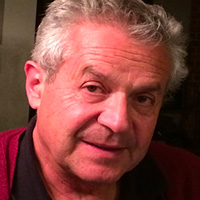 Dr. Ramiro Jordan is a scientist, innovator, educator, and entrepreneur. He is a member of the Electrical and Computer Engineering (ECE) department at The University of New Mexico, and he is currently the Associate Dean of Engineering for International Programs. His research activities include sustainability, Smart Grid, cognitive radio, multidimensional signal processing, and software development. As Chairman of the Board of the Ibero American Science & Technology Education Consortium (ISTEC) and founding member of the Peace Engineering Consortium, Dr. Jordan brings extensive experience in education, industry and entrepreneurship.
Dr. Ramiro Jordan is a scientist, innovator, educator, and entrepreneur. He is a member of the Electrical and Computer Engineering (ECE) department at The University of New Mexico, and he is currently the Associate Dean of Engineering for International Programs. His research activities include sustainability, Smart Grid, cognitive radio, multidimensional signal processing, and software development. As Chairman of the Board of the Ibero American Science & Technology Education Consortium (ISTEC) and founding member of the Peace Engineering Consortium, Dr. Jordan brings extensive experience in education, industry and entrepreneurship.
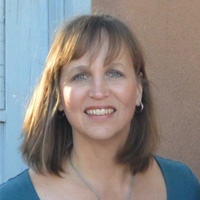 Sue Wilder, Ph.D. manages the design and delivery of short-term international certificate programs for the Global Education Office at The University of New Mexico. Prior to pursuing her doctoral degree in Organization, Information & Learning Sciences at UNM, Sue traveled to more than 60 countries and lead workshops for multicultural audiences as a training and development professional in corporate education and the tourism industry. She is honored to be a contributing member of the international community of practitioners working to develop a motivated base of adult learners through innovative research, design, and development. Sue also holds degrees in communication from Eastern Illinois University and Marquette University.
Sue Wilder, Ph.D. manages the design and delivery of short-term international certificate programs for the Global Education Office at The University of New Mexico. Prior to pursuing her doctoral degree in Organization, Information & Learning Sciences at UNM, Sue traveled to more than 60 countries and lead workshops for multicultural audiences as a training and development professional in corporate education and the tourism industry. She is honored to be a contributing member of the international community of practitioners working to develop a motivated base of adult learners through innovative research, design, and development. Sue also holds degrees in communication from Eastern Illinois University and Marquette University.
 Agostina Curcio, Esq. has been managing the international projects and agreements department at the UNLP - IRO since 2015 and provided special advisory and support to professors and researchers involved in the “100,000 Strong in the Americas” project "Peace Engineering." She contributed to the development of strategic partnerships with HEI in the US through her participation in "Argentina Higher Educator Exchange Program" organized by the US Embassy. Agostina also led workshops about intercultural competences within Erasmus+ PROFIC and works as lecturer at School of Law UNLP.
Agostina Curcio, Esq. has been managing the international projects and agreements department at the UNLP - IRO since 2015 and provided special advisory and support to professors and researchers involved in the “100,000 Strong in the Americas” project "Peace Engineering." She contributed to the development of strategic partnerships with HEI in the US through her participation in "Argentina Higher Educator Exchange Program" organized by the US Embassy. Agostina also led workshops about intercultural competences within Erasmus+ PROFIC and works as lecturer at School of Law UNLP.
Presenter: Dr. Joseph Hughes, Distinguished Professor, Civil, Architectural and Environmental Engineering, Drexel University
Description:Peace Engineering (PENG) is the application of STEAM principles, sustainable practices, cultural sensitivity and innovation to promote and support peace. Dr. Hughes explains the role of PENG in preventing and reducing impacts from violent conflict through education and research, and why PENG matters in today's world of higher education aimed toward global peace and sustainability. Drexel University's master’s degree program in peace engineering offers an opportunity to be at the forefront of integrating innovative technologies, approaches and policies using the studies and practices of peacebuilders.
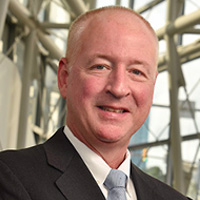 Dr. Joseph Hughes received his PhD and MS degrees from the University of Iowa in Civil and Environmental Engineering and a B.A. from Cornell College in Chemistry. He currently holds the position of University Distinguished Professor of Engineering at Drexel University. He served as Dean of Engineering at Drexel from 2012 to 2017 and Director of the A.J. Drexel Institute for Energy and Environment from 2014 to 2019. Prior to his appointment at Drexel University, he served at Georgia Tech as the Karen and John Huff School Chair of Civil and Environmental Engineering, the Howard T. Tellepsen Chair of Civil and Environmental Engineering, and Professor of Material Science and Engineering.
Dr. Joseph Hughes received his PhD and MS degrees from the University of Iowa in Civil and Environmental Engineering and a B.A. from Cornell College in Chemistry. He currently holds the position of University Distinguished Professor of Engineering at Drexel University. He served as Dean of Engineering at Drexel from 2012 to 2017 and Director of the A.J. Drexel Institute for Energy and Environment from 2014 to 2019. Prior to his appointment at Drexel University, he served at Georgia Tech as the Karen and John Huff School Chair of Civil and Environmental Engineering, the Howard T. Tellepsen Chair of Civil and Environmental Engineering, and Professor of Material Science and Engineering.
He served at Rice University at all academic ranks, including the George R Brown Chair of Engineering and Department Chair of Civil and Environmental Engineering. He is a registered professional engineer and is a Diplomat, by Eminence, of the American Academy of Environmental Engineering and Science, and Fellow of the Association of Environmental Engineering and Science Professors. Dr. Hughes has published extensively in journals, book chapters, edited books, peer reviewed conference proceedings, and is invited to address audiences in issues ranging from his research specialties to global issues of sustainability, energy, environment, and most recently the new field of Peace Engineering.
Presenter: Nancy Hayden, Sandia National Labs
Description: Learn how Sandia National Labs is embracing peace engineering as a means to harness science, engineering, technology and more to find new ways of creating a pathway toward peace, sustainability and equity.
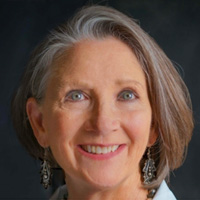 Dr. Nancy K. Hayden is a Principal Systems Analyst at Sandia National Laboratories, where she is a member of the Strategic Foresight and Policy Analysis Group. At Sandia, she leads strategic foresight and policy analysis on how emerging technologies - such as Artificial Intelligence, Autonomy, and Space - will impact human security and global stability. Dr. Hayden is an expert on the science of complex systems, and its applications to the nexus of international security, science and technology, and governance. She has led multi-disciplinary teams for the US government to address security issues that include nuclear energy safety and waste management, nuclear nonproliferation, counter-WMD, counter-terrorism, and cyber warfare. Dr. Hayden has also consulted with governments of Canada, UK, and Sweden, and has contributed to the successful completion of bilateral efforts to secure dangerous nuclear materials in Russia and in China. She is one of a few people in the US to have visited the Chinese nuclear weapons research facilities in Mianyang, China.
Dr. Nancy K. Hayden is a Principal Systems Analyst at Sandia National Laboratories, where she is a member of the Strategic Foresight and Policy Analysis Group. At Sandia, she leads strategic foresight and policy analysis on how emerging technologies - such as Artificial Intelligence, Autonomy, and Space - will impact human security and global stability. Dr. Hayden is an expert on the science of complex systems, and its applications to the nexus of international security, science and technology, and governance. She has led multi-disciplinary teams for the US government to address security issues that include nuclear energy safety and waste management, nuclear nonproliferation, counter-WMD, counter-terrorism, and cyber warfare. Dr. Hayden has also consulted with governments of Canada, UK, and Sweden, and has contributed to the successful completion of bilateral efforts to secure dangerous nuclear materials in Russia and in China. She is one of a few people in the US to have visited the Chinese nuclear weapons research facilities in Mianyang, China.
Dr. Hayden earned a PhD in International Security and Economics at the Maryland School of Public Policy, where she remains a Research Fellow with the Center for International and Strategic Studies at the University of Maryland. Driven by a belief in, and commitment to, advancing the power of women to change the world, her academic research interests involve innovations in international interventions and local governance to transform conflict-ridden societies. She has conducted field research in the US, Europe, and Africa, interviewing hundreds of government officials, military personnel, civil society and non-governmental organizations, and humanitarian relief organizations. She is now pioneering applications of this research to the new field of peace engineering.
10:00-11:00 AM MDT / 1:00-2:00 PM ART
Presenter: Bruce Cahan, Esq., Stanford University Management Science and Engineering Department
Imagine the three most important things that you care about in the world. Peace, security, climate change, whatever those are ... Bruce's work explores the interdependency or "adjacencies" of quality of life related elements and how they impact peace engineering.
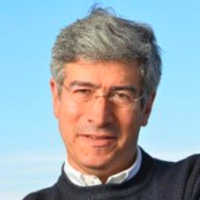 Bruce Cahan is a Lecturer in Stanford University's Management Science and Engineering Department, a Lecturer at the Hasso Plattner Institute of Design (d.school), a Distinguished Scholar at Stanford's Human-Sciences and Technologies Advanced Research Institute's mediaX Program, and an active member of CodeX Fellow at Stanford’s Center for Legal Informatics. Bruce's course offerings at Stanford include Ethics of Finance and Financial Engineering (MS&E 148), Investing on the Buy Side of Wall Street (MS&E 449), Sustainable Banking (CEE 244A) and Redesigning Finance (d.school). As an Ashoka Fellow through Urban Logic, Bruce is creating the Space Commodities Exchange, GoodBank™(IO), an independent teaching bank for high-transparency, impacts-aware commercial bankers, and other projects.
Bruce Cahan is a Lecturer in Stanford University's Management Science and Engineering Department, a Lecturer at the Hasso Plattner Institute of Design (d.school), a Distinguished Scholar at Stanford's Human-Sciences and Technologies Advanced Research Institute's mediaX Program, and an active member of CodeX Fellow at Stanford’s Center for Legal Informatics. Bruce's course offerings at Stanford include Ethics of Finance and Financial Engineering (MS&E 148), Investing on the Buy Side of Wall Street (MS&E 449), Sustainable Banking (CEE 244A) and Redesigning Finance (d.school). As an Ashoka Fellow through Urban Logic, Bruce is creating the Space Commodities Exchange, GoodBank™(IO), an independent teaching bank for high-transparency, impacts-aware commercial bankers, and other projects.
Presenter: Richard Moore, Co-Chair of White House Environmental Justice Advisory Council (WHEJAC) and Co-Director of Los Jardines Institute, Albuquerque
Description: Environmental Justice (EJ) is the fair treatment and meaningful involvement of all people regardless of race, color, national origin, or income, with respect to the development, implementation, and enforcement of environmental laws, regulations, and policies. This goal will be achieved when everyone enjoys: the same degree of protection from environmental and health hazards, and equal access to the decision-making process to have a healthy environment in which to live, learn, and work. From his perspective as a world renowned leader in the global EJ movement, Richard explains why environmental justice is a critical component of peace engineering.
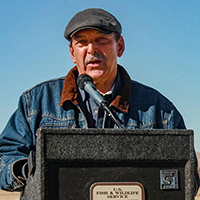 Richard Moore currently serves as the Co-Chair of the inaugural White House Environmental Justice Advisory Council (WHEJAC). Richard has also served on the Environmental Protection Agency's (EPA) National Environmental Justice Advisory Council (NEJAC), where in 1993 he was the first elected Chair. Richard is the Co-Coordinator for Los Jardines Institute in Albuquerque, New Mexico, and national Co-Coordinator of the Environmental Justice & Health Alliance for Chemical Policy Reform, advocating for stronger, safer, and just chemical policies. He is also Co-Founder and Board Member of Just Transition Alliance and a Board Member of Coming Clean, Inc.
Richard Moore currently serves as the Co-Chair of the inaugural White House Environmental Justice Advisory Council (WHEJAC). Richard has also served on the Environmental Protection Agency's (EPA) National Environmental Justice Advisory Council (NEJAC), where in 1993 he was the first elected Chair. Richard is the Co-Coordinator for Los Jardines Institute in Albuquerque, New Mexico, and national Co-Coordinator of the Environmental Justice & Health Alliance for Chemical Policy Reform, advocating for stronger, safer, and just chemical policies. He is also Co-Founder and Board Member of Just Transition Alliance and a Board Member of Coming Clean, Inc.
Presenter: Prof. Fabián Salvioli, Universidad Nacional de La Plata, Argentina
Description: Justice, diversity and inclusion are indispensable elements of contemporary democracies. The rule of law must focus on guaranteeing the rights of all people without discrimination, and this requires that public policy be based on a human rights approach. Higher Education has a central role for the exercise of public policy from a human rights perspective. The positions of design and execution of public policy in the countries are in the hands of people with a university degree, and professionals who graduate from universities are part of the technical teams of directorates, ministries, public agencies, etc. For this reason, training in human rights must be included in the curricula of different careers, not only in law schools. The gender perspective, problems related to persons with disabilities, the situation of the migrant population and of indigenous peoples and populations, are issues that must be duly addressed -from a human rights perspective- in the different professional disciplines. The challenge is the education and training in human rights within the different subjects of each Faculty, and that each theme is reviewed from a human rights perspective. This will generate professionals who occupy leadership and execution spaces in public policy, who meet the social expectations of contemporary democracies in terms of equality, diversity and inclusion.
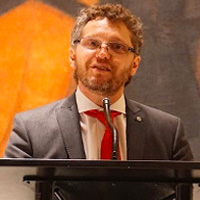 Dr. Fabián Salvioli is a human rights lawyer and professor. He has a Ph.D. on Juridical Sciences and a Master degree on International Relations. He took up his functions as United Nations Special Rapporteur on the promotion of truth, justice, reparation and guarantees of non-recurrence on 1 May 2018. As an academic, Fabián Salvioli is professor of International Law and Human Rights at the School of Law of the University of La Plata, where he is also Director of the Human Rights Master Program and Director of the Institute of Human Rights. He received several honorary titles in recognition of his work in the fields of human rights and education, including: Honorary Professor of the University of Buenos Aires, Honorary Professor of the National University of La Pampa, Illustrious Graduate of the National University of La Plata, Illustrious Citizen of the City of La Plata, and Outstanding Personality of the Province of Buenos Aires.
Dr. Fabián Salvioli is a human rights lawyer and professor. He has a Ph.D. on Juridical Sciences and a Master degree on International Relations. He took up his functions as United Nations Special Rapporteur on the promotion of truth, justice, reparation and guarantees of non-recurrence on 1 May 2018. As an academic, Fabián Salvioli is professor of International Law and Human Rights at the School of Law of the University of La Plata, where he is also Director of the Human Rights Master Program and Director of the Institute of Human Rights. He received several honorary titles in recognition of his work in the fields of human rights and education, including: Honorary Professor of the University of Buenos Aires, Honorary Professor of the National University of La Pampa, Illustrious Graduate of the National University of La Plata, Illustrious Citizen of the City of La Plata, and Outstanding Personality of the Province of Buenos Aires.
11:00 AM -12:00 PM MDT / 2:00-3:00 PM ART
Presenter: Dr. Marisa De Giusti, Faculty at Universidad Nacional de La Plata (UNLP), Argentina and President of Ibero American Science & Technology Education Consortium (ISTEC)
Description: Open Science (OS) is no more or less than sharing all the research processes and products during the life cycle of a research project. The challenge is to change minds for the application of OS principles, sustainable practices, cultural sensitivity, and innovation to promote and support OS. Dr. De Giusti explores the concepts and aspects of OS as a mindset that needs policies and leadership to address globally shared challenges such as: OS in all policies; open research process; infrastructure; legal aspects; multilingual and diversity; funding; and also a lot of new knowledge related with sharing FAIR and CARE data on an open basis.
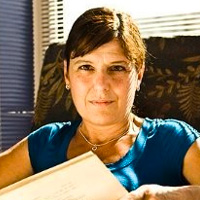 Dr. Marisa De Giusti holds a PhD in Computer Science and Engineer in Telecomunications at UNLP and she is a researcher at Comisión de Investigaciones Científicas de la Provincia de Buenos Aires. She teaches graduate and postgraduate courses at the Computer Science College, UNLP. Since 1990, she has worked with ISTEC. She has authored 100+ international publications related to digital repositories, interoperability, digital preservation, experimental design, and simulation among other areas.
Dr. Marisa De Giusti holds a PhD in Computer Science and Engineer in Telecomunications at UNLP and she is a researcher at Comisión de Investigaciones Científicas de la Provincia de Buenos Aires. She teaches graduate and postgraduate courses at the Computer Science College, UNLP. Since 1990, she has worked with ISTEC. She has authored 100+ international publications related to digital repositories, interoperability, digital preservation, experimental design, and simulation among other areas.
Presenter: Dr. Kamil Agi, CEO, SensorComm Technologies, Inc.
Description: With offices in New Mexico and California, SensorComm Technologies (SCT) and its partners are building a better, more sustainable world with smart portable IoT emission monitoring solutions for transportation and energy. Dr. Agi explains how SensorComm is currently working with UNM’s Center for Micro-Engineered Materials as part of a three year U.S. Department of Energy program to provide remote data sensing and analysis for natural gas leak detection using an innovative Internet-of-Things (IoT) methane sensor system.
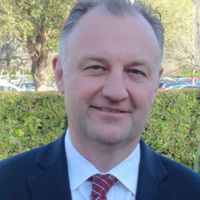 Dr. Agi is a founding member of the Peace Engineering Consortium and speaks globally as a recognized thought leader on new (IoT-based) climate change technologies, industry 4.0 and next-generation IoT. Dr. Agi has provided consulting, advisory and commercialization expertise to organizations including DARPA, MIT, STANFORD, UNM and NSF. Dr. Agi’s focus is in applications that deploy significant technology integrating artificial intelligence (AI) and machine learning (ML) algorithms to extract, analyze and transform unique data signatures into real-time actionable intelligence and efficiencies.
Dr. Agi is a founding member of the Peace Engineering Consortium and speaks globally as a recognized thought leader on new (IoT-based) climate change technologies, industry 4.0 and next-generation IoT. Dr. Agi has provided consulting, advisory and commercialization expertise to organizations including DARPA, MIT, STANFORD, UNM and NSF. Dr. Agi’s focus is in applications that deploy significant technology integrating artificial intelligence (AI) and machine learning (ML) algorithms to extract, analyze and transform unique data signatures into real-time actionable intelligence and efficiencies.
This enables individuals and organizations to make smarter choices for themselves, and the world around them. He was recently named Research Associate Professor by UNM’s Electrical & Computer Engineering Department to recognize and facilitate his contributions to the academic mission of UNM.Dr. Agi received his Ph.D. in Electrical Engineering from the University of New Mexico in Albuquerque and his BS and MS in Electrical Engineering from NYU Tandon School of Engineering in New York. He received his MBA from the Berkeley-Columbia Executive MBA Program.
Presenter: Dr. Ramiro Jordan, UNM School of Engineering
Description: A summary of the most essential points of the day and what they mean for the future of peace engineering.
 Dr. Ramiro Jordan is a scientist, innovator, educator, and entrepreneur. He is a member of the Electrical and Computer Engineering (ECE) department at The University of New Mexico, and he is currently the Associate Dean of Engineering for International Programs. His research activities include sustainability, Smart Grid, cognitive radio, multidimensional signal processing, and software development. As Chairman of the Board of the Ibero American Science & Technology Education Consortium (ISTEC) and founding member of the Peace Engineering Consortium, Dr. Jordan brings extensive experience in education, industry and entrepreneurship.
Dr. Ramiro Jordan is a scientist, innovator, educator, and entrepreneur. He is a member of the Electrical and Computer Engineering (ECE) department at The University of New Mexico, and he is currently the Associate Dean of Engineering for International Programs. His research activities include sustainability, Smart Grid, cognitive radio, multidimensional signal processing, and software development. As Chairman of the Board of the Ibero American Science & Technology Education Consortium (ISTEC) and founding member of the Peace Engineering Consortium, Dr. Jordan brings extensive experience in education, industry and entrepreneurship.

